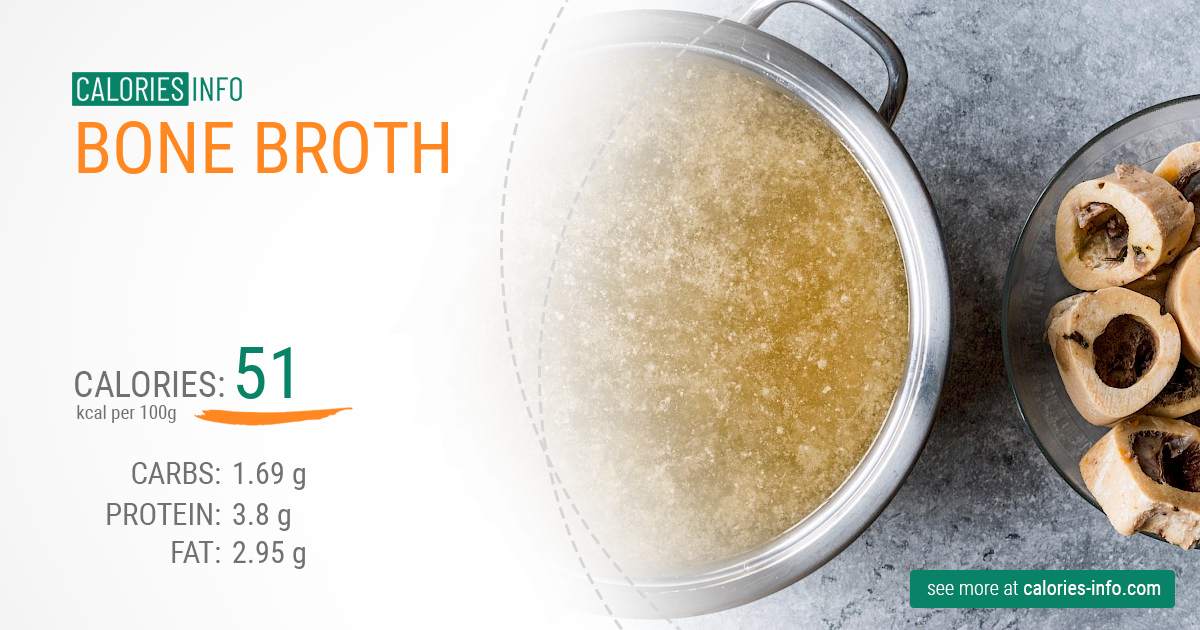Bone Broth Calories: A Nutritional Perspective
In recent years, bone broth has gained significant popularity as a health-promoting beverage. Advocates claim that it is packed with nutrients and offers various health benefits. However, there has been some debate regarding its calorie content and whether it can fit into a low-calorie diet. In this article, we will delve into the world of bone broth calories and explore its nutritional composition.
Bone broth is a savory liquid made by simmering animal bones and connective tissues in water for an extended period. This slow cooking process allows the bones and tissues to release their nutrients, resulting in a flavorful and nutrient-rich broth. It is often touted for its high protein content, collagen, gelatin, and other beneficial compounds.
When it comes to calorie content, bone broth is relatively low in calories compared to other food options. The exact number of calories can vary depending on factors such as the type of bones used, cooking time, and additional ingredients. On average, one cup (240 ml) of homemade bone broth contains approximately 40-60 calories. However, it's important to note that store-bought or commercially packaged bone broths may have higher calorie content due to added ingredients like oils, flavorings, or thickeners.

(Bone Broth Calories)
The low-calorie nature of bone broth makes it an attractive choice for individuals looking to manage their calorie intake or those following specific diets. For instance, people on a weight loss journey often incorporate bone broth into their meal plans due to its satiating effect and low-calorie count. It can be used as a flavorful base for soups, stews, or consumed on its own as a warm, comforting drink.
Apart from being low in calories, bone broth also offers several other nutritional benefits. It is an excellent source of protein, which is essential for muscle repair, growth, and overall health. The protein content of bone broth varies depending on the bones used, but it typically provides around 6-12 grams of protein per cup. Additionally, bone broth is rich in collagen and gelatin, which are known for their role in supporting joint health, promoting gut health, and improving skin elasticity.
In terms of micronutrients, bone broth is a good source of minerals like calcium, magnesium, phosphorus, and potassium. These minerals play crucial roles in maintaining bone health, electrolyte balance, and proper functioning of various bodily systems. The slow simmering process of bone broth helps extract these minerals from the bones, making them more accessible for absorption.
While bone broth is a nutrient-dense and low-calorie beverage, it should not be viewed as a magical cure-all. It is essential to maintain a balanced and varied diet that includes a wide range of foods to meet all nutritional needs. Bone broth can be a valuable addition to one's diet, but it should not replace other important food groups or be relied upon as the sole source of nutrition.
Moreover, individuals with specific dietary requirements or health conditions should exercise caution when consuming bone broth. For example, those with sodium-sensitive hypertension may need to limit their intake due to the naturally occurring sodium in bone broth. It's always advisable to consult with a healthcare professional or a registered dietitian for personalized advice based on individual circumstances.
In conclusion, bone broth is a low-calorie beverage that offers several nutritional benefits. It is rich in protein, collagen, gelatin, and minerals, making it a valuable addition to a balanced diet. However, the calorie content of bone broth can vary depending on the preparation method and additional ingredients. It's important to consider individual dietary needs and consult with professionals when incorporating bone broth into one's diet. With the right approach, bone broth can be a delicious and nutritious addition to a healthy lifestyle.